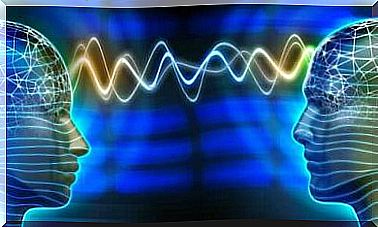Anti-inflammatories Against Depression

For some time now, the number of studies focusing on the role that inflammation plays in depressive states has been increasing. Following this, in this article we will see the possible therapeutic use of anti-inflammatories against depression.
According to some studies, conventional treatment of major depression with antidepressants and cognitive therapy is effective for only 60% of patients. This means 40% of patients resistant to treatment; among these the depressive states on which the therapy has no effect can lead to suicide.
In the case of major depression we are talking about a very high incidence. This disorder affects approximately 350 million people worldwide, or 1 in 10 adults. As a result, it is important to learn more about the therapeutic alternatives that can help treat this disorder.

The role of inflammation in depression and anti-inflammatories
As we said, more and more studies are associating depression with inflammatory states of the brain. At first it was not clear whether the depression was a consequence of a pre-existing inflammation or if, vice versa, it was the root cause of this inflammatory process.
Depression, in principle, is a multifactorial disorder in which various psychosocial, genetic and biological factors are involved. Among them is stress, which, in turn, is also capable of activating the inflammatory signaling cascade and activating changes in our brain.
In patients with major depression, an increased presence of inflammatory biomarkers was observed in the blood. Among these, the so-called inflammatory cytokines, also capable of modifying the central nervous system, the immune system and even the neuroendocrine system. Specifically, an increase in C reactive protein (CRP) was found, as well as in several interleukins.
Anti-inflammatories for depression
Starting with this anti-inflammatory theory of depression opens up a wide range of therapeutic possibilities that can be useful in the treatment of this disorder. This is especially important for patients with major depression who do not react to classic antidepressant medications.
It was therefore noted that inhibition of pro-inflammatory cytokines increases the efficacy of antidepressant drugs and improves, in general, the health status of patients with this pathology. At first this association was highlighted by the oncological and anti-inflammatory treatment, in which it was observed that the administration of interferon alpha produced symptoms similar to those of depressive states.
Studies are currently underway on the real therapeutic use of anti-inflammatory drugs against depression. Several animal researches have shown that the administration of inflammatory cytokine antagonists reduces depressive behaviors, as well as stress reactions.
These inflammatory cytokine antagonists – also called anti-inflammatory or anti-cytokine cytokines – are sometimes used in patients with autoimmune systemic diseases, such as rheumatoid arthritis or psoriasis. In studies performed on these patients, a significant antidepressant effect compared to a placebo was recognized among the undesirable effects of therapy.

Omega-3: an additional treatment for depression
Still on this topic, some studies propose omega-3 supplements as adjuvants in therapy for depression, thanks to their anti-inflammatory effect. Several studies, in fact, associate the presence of depression with a deficit of omega-3 polyunsaturated fatty acids.
The omega-3 fatty acids that have been shown to be more effective against depressive states, according to what is supported by various studies, are those of the eicosapentaenoic or EPA type; specifically, it is the type that has reported a greater anti-inflammatory effect. It is in fact capable of influencing the immune system and reducing the number of pro-inflammatory cytokines and prostaglandins, as well as modifying other molecular mechanisms.
To date, it is still necessary to continue with the studies in this regard. Depression is a very complex disorder and the inflammation presents symptoms that are too general to allow the association between the two to be clearly defined. It is undoubtedly an open therapeutic field, with many facets and in which there are many hopes for the future.









